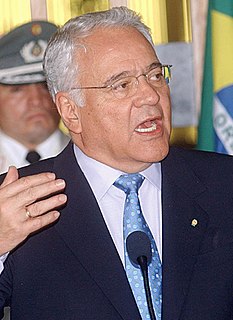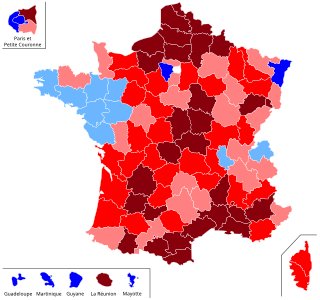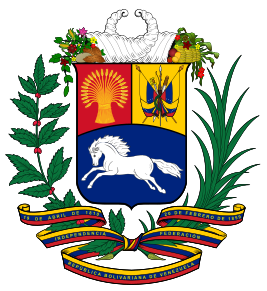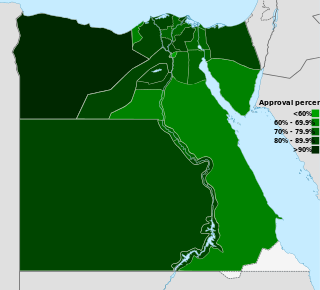
The politics of Bolivia takes place in a framework of a presidential representative democratic republic, whereby the president is head of state, head of government and head of a diverse multi-party system. Executive power is exercised by the government. Legislative power is vested in both the government and the two chambers of parliament. Both the Judiciary and the electoral branch are independent of the executive and the legislature. After the 2014 election, 53.1% of the seats in national parliament were held by women, a higher proportion of women than that of the population.

The President of Bolivia officially known as the President of the Plurinational State of Bolivia, is head of state and head of government of Bolivia. According to the current Constitution, the president is elected by popular vote to a five-year term, renewable once. In 2016, in a referendum the country voted to maintain term limits. Since 2009, if no candidate wins a majority, the top two candidates advance to a runoff election. Prior to 2009, if no candidate won half the popular vote, the president was chosen by a vote in a joint legislative session from among the top two candidates.

Gonzalo Sánchez de Lozada y Sánchez de Bustamante, familiarly known as "Goni", is a Bolivian politician and businessman, who served as President of Bolivia for two non-consecutive terms. He is a lifelong member of the Movimiento Nacionalista Revolucionario (MNR). As Minister of Planning in the government of President Víctor Paz Estenssoro, Sánchez de Lozada used "shock therapy" in 1985 to cut hyperinflation from an estimated 25,000% to a single digit within a period of less than 6 weeks.

Elections in Bolivia gives information on elections and election results in Bolivia.

The French referendum on the Treaty establishing a Constitution for Europe was held on 29 May 2005 to decide whether France should ratify the proposed Constitution of the European Union. The result was a victory for the "No" campaign, with 55% of voters rejecting the treaty on a turnout of 69%.

A constitutional referendum was held in Bolivia on 25 January 2009, postponed from the initially planned dates of 4 May 2008 and then 7 December 2008. Drafted by the Constituent Assembly in 2007, the new constitution was approved in the referendum according to an exit poll by Ipsos Apoyo for La Razón and ATB, a Bolivian television network. Furthermore, it required early elections to be held on 6 December 2009.

The Bolivian Constituent Assembly, convened on August 6, 2006 in Sucre, with the purpose of drafting a new national constitution by December 14, 2007; extended from the original deadline of August 6, 2007. The Assembly approved the new Political Constitution of the State on 9 December 2007. It was put to a national referendum held on 25 January 2009, and went into force on 7 February 2009.

A vote of confidence in President Evo Morales in the form of a referendum was held in Bolivia on 10 August 2008. The vote was held to determine whether Morales, Vice President Álvaro García Linera, and eight out of nine departmental Prefects should stay in office. Morales received more than 67% support and six of the eight prefects were returned. The prefects of Cochabamba Department and La Paz Department were defeated and had to face re-election.

The Bolivian general election, 2009 was held on December 6, 2009, following a constitutional referendum held on 25 January 2009. Voters elected:

The domestic policy of the Evo Morales administration refers to the domestic policy initiatives of the current President of Bolivia, including past pre-presidential advocacies by Morales.

The 2009 referendum was a vote in which the citizens of Venezuela approved Amendment No. 1 of the Constitution of Venezuela; this abolished term limits for the offices of President, state governors, mayors and National Assembly deputies.

A constitutional referendum was held in Niger on 4 August 2009. The referendum proposed the dissolution of the Fifth Republic and the creation of the Sixth Republic under a fully presidential system of government, offering a yes or no vote on the suspension of the constitution and granting President Mamadou Tandja a three-year interim government, during which the constitution of the Sixth Republic would be formulated. On 20 June, the Constitutional Court declared the plan illegal, but Tandja subsequently assumed emergency powers and dissolved the Court. The events surrounding this election led to a constitutional crisis.
The history of Bolivia since 1982 begins with the restorations of democracy after the rule of the military junta of 1982. Evo Morales has held the presidency since 2006. A new constitution was enacted in 2009. Bolivia's population has roughly doubled over this period, from 5 million in 1980 to 10 million as of 2012.

The Presidency of Evo Morales began on January 22, 2006 when Evo Morales was inaugurated as the 80th President of Bolivia, following his victory in the 2005 general election, where he won 53.7% of the vote, defeating Jorge Quiroga, Samuel Doria Medina, and several other candidates. Morales increased taxation on the hydrocarbon industry to bolster social spending, emphasising projects to combat illiteracy, poverty, racism, and sexism. Vocally criticizing neoliberalism and reducing Bolivia's dependence on the World Bank and International Monetary Fund, his administration oversaw strong economic growth while following a policy termed "Evonomics" which sought to move from a liberal economic approach to a mixed economy. Scaling back U.S. influence in the country, he built relationships with leftist governments in the Latin American pink tide and signed Bolivia into the Bolivarian Alliance for the Americas. Attempting to moderate the left-indigenous activist community, his administration also opposed the right-wing autonomist demands of Bolivia's eastern provinces. Winning a recall referendum in 2008, he instituted a new constitution that established Bolivia as a plurinational state and was re-elected in 2009. His second term witnessed the continuation of leftist policies and Bolivia's joining of the Bank of the South and Community of Latin American and Caribbean States; he was again reelected in the 2014 general election.

A constitutional referendum was held in Egypt on 19 March 2011, following the 2011 Egyptian revolution. More than 14 million (77%) were in favour, while around 4 million (23%) opposed the changes; 41% of 45 million eligible voters turned out to vote.

The Bolivian general election, 2014 was Bolivia's second to take place under the country's 2009 constitution, and the first supervised by the Plurinational Electoral Organ, a newly created fourth branch of government. Incumbent President Evo Morales was re-elected for a third term.

A constitutional referendum was held in the Republic of the Congo on 25 October 2015 regarding a proposal to change the constitution, primarily to modify the rules regarding presidential terms.

A constitutional referendum was held in Burundi on 17 May 2018. The proposed amendments to the constitution were approved by over 70% of voters.





















